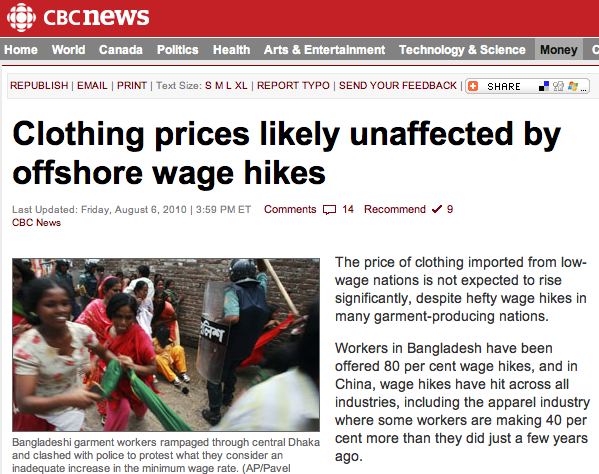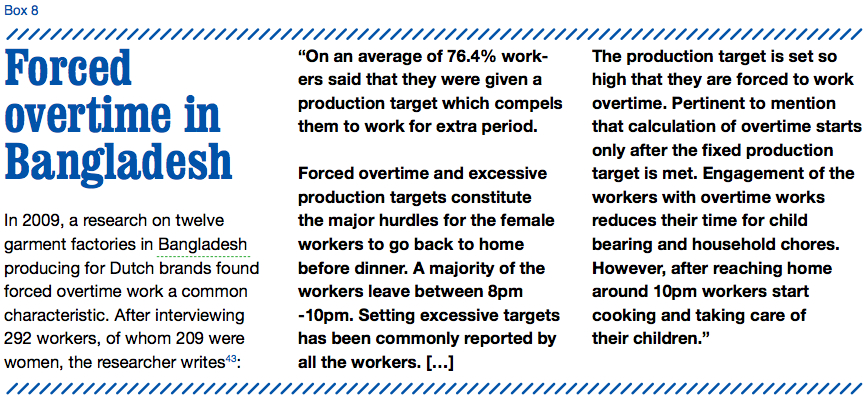Bangladesh has been rocked by protests that resulted in injured and killed workers and security personnel, labour leaders have gone into hiding fearing the worst, some arrests have taken place — all of this over unsatisfactory wage hikes to 3,000 Taka/month (~US$43) but, don’t worry Canadian consumers, your clothing costs will not increase!
I have to say, I was a bit surprised by this headline, although, to be fair, it is in the “Money” section. The article has a cursory overview of what happened in Bangladesh (click here for a detailed summary of the events in Bangladesh) but something else stood out while reading it. On the wage hikes, an H&M representative pointed out that the increase in cost is “competition-neutral” affecting all brands equally.
Really?
What the H&M rep said would be accurate if we lived in a perfect world. But, when we talk of Bangladesh which has a low capacity to regulate and enforce the law, what ends up happening is that the minimum wage is almost like a suggested wage. Check out this inset from Stitching a Decent Wage Across Borders: The Asia Floor Wage Proposal 2009
Interesting. So, factories have the discretion to set production targets which helps control wages. This makes wages variable relative to production quotas which factories can play around with to manage their costs. We may be talking about a minimum wage increase but if production quotas change (i.e. increase) to match this wage hike then I doubt that any cost increases will be “competition neutral”. I predict that what may happen is that factories will play around with production targets to remain competitive compared to other factories. Why? Because factories work in a world driven by a “survival of the cheapest” philosophy. So while the CSR department may put pressure on the government and supplier factories to improve conditions and wages causing increases in unit prices, the buying department may start to look elsewhere for cheaper products which, more likely than not, means another factory with low wages and sub-par working conditions. Buying practices are a huge reason why producers are so worried about this wage increase.
Time to connect the dots:
This whole system is connected from the farm all the way into the closet and beyond that into the dump. Retailers, brands and other clients cannot be outraged at the low wages in Bangladesh and put huge pressure on factories to improve their conditions without acknowledging that at least some of the responsibility lies with their purchasing practices. Same with us consumers, we can’t be happy to pay an incredibly low price for clothing and then act completely shocked and outraged when we find out what it takes for that to happen. Who are we kidding? It’s like that scene from Casablanca:







